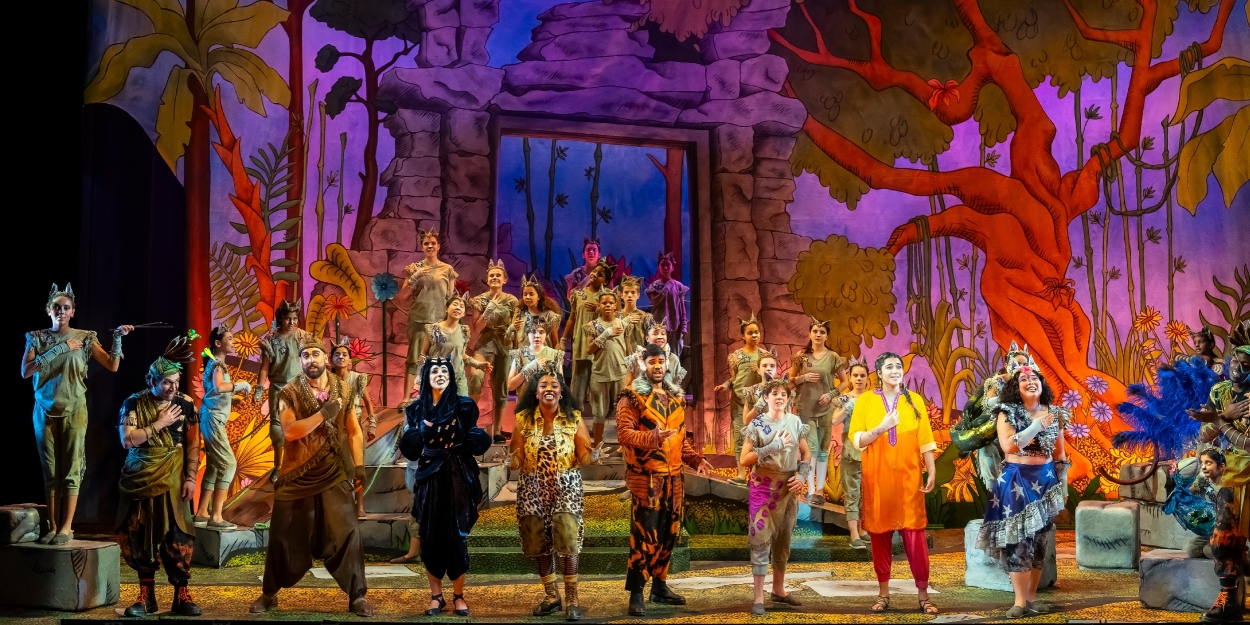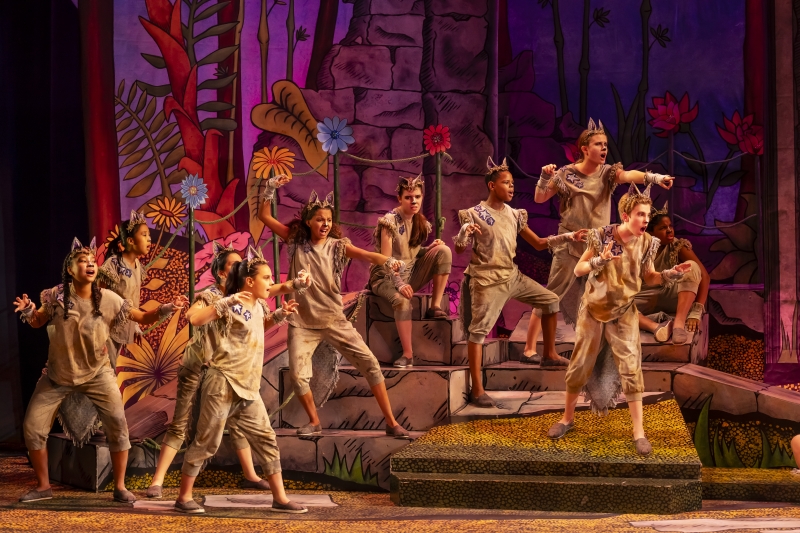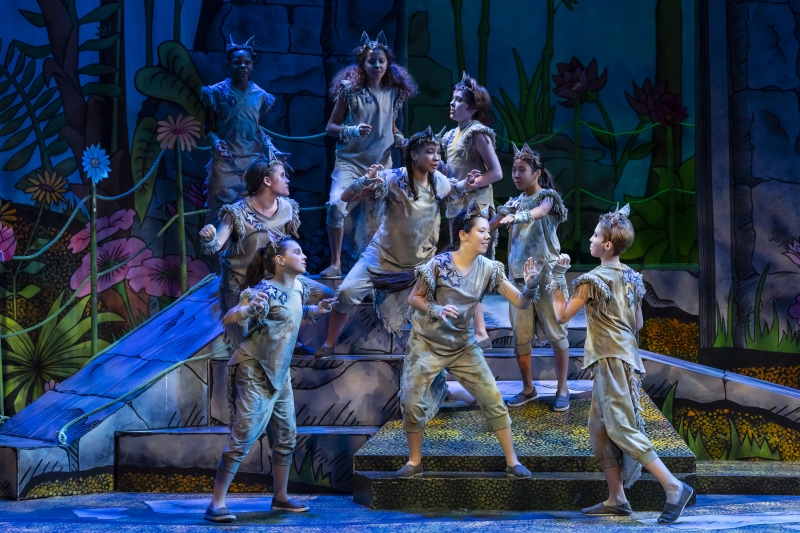Review: JUNGLE BOOK at The Kennedy Center
The Washington National Opera takes on The Jungle Book for it's holiday opera

Jungle Book is the latest in Washington National Opera’s long-running tradition of putting on family-friendly, often original operas during the holiday season.
The mission and commitment to this programming is truly admirable. For one thing, opera’s long-term future depends on younger generations. The potentially imminent extinction of the art form has long been a concern, especially in America, where opera was never as culturally relevant as it had been in many European cities. Peter Gelb, General Manager over at the Metropolitan Opera, has often spoke about taking on his role at a time when the average age of a Met subscriber grew by one year, every year.
But, more generally speaking, the future of everything depends on younger generations, which is why it feels so incredibly important to invest in high quality, high value children’s entertainment; especially at a time when the competition for their attention is in a coldhearted, algorithmically-fueled race to rock bottom.
And if very high quality art for a very young audience is the goal, Rudyard Kipling’s The Jungle Book is ideal source material to adapt. While Kipling’s legacy can certainly be critiqued, his work treated its young readers with the utmost respect. Published in 1894, the short stories of The Jungle Book convey complex lessons with beautiful prose. The enduring potential of this work is fairly definitively proven by the countless and varied adaptations that have been inspired almost entirely by its opening story, "Mowgli's Brothers."
_Jungle%20Book_WNO_photo%20by%20Scott%20Suchman%202.jpg)
This iteration, composed by Kamala Sankaram with a libretto by Kelley Rourke, tells a much simplified and revised version of “Mowgli’s Brothers.” The tiger Shere Khan (performed by understudy Nicholas Huff in place of Sahel Salam on press night,) is in pursuit of a human girl, Mowgli (a role alternated between Vivian Warren and Anoushka Sharma,) who has been taken in by a pack of wolf cubs. Led by their strong and empathetic matriarch Raksha (Michelle Mariposa,) and with guidance from their teacher, Baloo the bear (Sergio Martínez,) the wolves unite in hiding Mowgli to keep her safe from Shere Khan, even though she is not technically one of them.

Standing together against the fierce but lonely tiger, the pack is able to able to communally protect Mowgli. Still, the unity of the naturally suspicious wolves around such an outsider seems tenuous at best — except for immediately loyal and loving Little Brother (Declan Fenell.)
_Sergio%20Mart%C3%ADnez%20(Baloo)_Jungle%20Book_WNO_photo%20by%20Scott%20Suchman.jpg)
After the black panther Bagheera (Kresley Figueroa) tells Mowgli of a red flower—fire, that is—in the human village that even Shere Khan is afraid of, Mowgli elects to run off in the middle of the night in order to wield the red flower and defeat Shere Khan once and for all.

Waking up to find Mowgli gone, many of the wolf cubs believe that Mowgli has abandoned them, validating their initial distrust of her, and the wolf pack splits into two divided tribes. Shere Khan shows up, ready to capitalize on this chaos, when Mowgli reappears, now armed with the red flower that all animals in the jungle fear more than anything else.
Shere Khan is immediately humbled by the red flower. At that point Little Brother suggests that Shere Khan might be happier and less mean if he also had a pack, and so the wolves decide to take in the tiger and his single ally, the Hyena (Viviana Goodwin.) They all sing together about how their differences make them stronger together, and the show ends.
If all this is coming across as surprisingly simple and saccharine to those with some memory of the original story — well, you’re not wrong. In Kipling’s telling, “Mowgli’s Brothers” is a challenging and bittersweet fable about abandonment, found families, and our place as individuals within rigid societies.
Changing the majority of the male roles to female ones is a largely superficial alteration that does little to either augment or diminish the original story. But the dumbing down of its more difficult themes and its less happy ending leaves this Jungle Book feeling dewclawed and toothless.
Gone are Kipling’s immersive and nuanced explorations of the hierarchies and rules that govern the vicious jungle. Gone is Mowgli’s heart-wrenching eviction from the jungle after triumphing over Shere Khan in a way only a man could, further cementing his status as an outsider to the pack. Gone, also, are Kipling’s poetry and prose, replaced by a simple and safe text that asks little from its audience.
It’s disappointing, in the end, that Jungle Book finds itself, like Mowgli, lost between worlds; too childish to hold adults’ interests, too long and operatic to hold childrens’.
It helps then that the production is colorful and lavish. Set designer James Rotondo and lighting designer Amith Chandrashaker give the audience plenty to look at. Erik Teague’s costumes are straightforward but very convincingly convey a large array of creatures and critters.
_Jungle%20Book_WNO_photo%20by%20Scott%20Suchman%202.jpg)
The uncontested highlight of the production is its cast. The adult soloists sing powerfully with plenty of emotional range and comic timing — Mariposa and Martínez especially. But the kids in the cast are the most impressive.
The Washington National Opera Youth Chorus, centrally on stage for almost the entire runtime, performs with such ease as if they’ve been doing this sort of thing for many more years than they’ve even been alive. This is a Washington National Opera debut for both Sharma and Fennell, which you’d never guess from their assured and confidant leading performances.
So it definitely can’t be said that the production won’t have been an enduringly inspiring and educational experience for the many young artists who have taken part. It’s only a shame that the same can’t necessarily be said for the young audience members watching it.
_Jungle%20Book_WNO_photo%20by%20Scott%20Suchman.jpg)
Jungle Book performs December 13 - 16, 2024 at the Kennedy Center’s Terrace Theater. Performances are approximately 80 minutes, including one 20-minute intermission.
Reader Reviews

Videos

